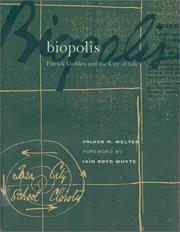| Listing 1 - 3 of 3 |
Sort by
|
Book
ISBN: 9782351593455 Year: 2010 Publisher: Presses de l’Ifpo
Abstract | Keywords | Export | Availability | Bookmark
 Loading...
Loading...Choose an application
- Reference Manager
- EndNote
- RefWorks (Direct export to RefWorks)
This book presents the history of town planning in Beirut between the period of independence and the start of the Lebanese civil war. It emphasizes the ambitious reformist presidency of Fouad Chéhab, the founding moment of the construction of the State in Lebanon, often invoked, admired, regretted, sometimes also criticized for his failures and his disappointed ambitions, especially in the social field. and town planning. This period deserves to be analysed for itself rather than as a golden age, a parenthesis or the cause of the misfortunes that followed. Town planning was one of the utopias of the time. This book endeavours to restore the originality of this period in a broader framework, that of town planning in the Arab countries acceding to independence. He insists on the political dimension of urban projects and on their contribution to the construction of a modern State, guarantor of development. These plans faced opposition from multiple social forces, ranging from poorly housed residents to land speculators. This resulted in many renouncements: Beirut largely remained, at that time, a city in plans. A privileged place is given to urban planning professionals, architects and engineers, who recognized themselves and invested themselves in this project but also influenced it by their modernist and elitist designs. Faced with French experts, such as Father Lebret or Michel Écochard, Lebanese professionals prevailed in administrations and councils and took charge of the design of the plans and their implementation. They built an imaginary planner that will last beyond the time of the war to haunt the projects and counter-projects of reconstruction.
Sociology & Social History --- Social Sciences --- Communities - Urban Groups --- géographie --- histoire de l’urbanisme --- urbanisme --- développement --- Fouad Chéhab --- Michel Écochard --- géographie urbaine --- architectes --- urbanistes --- ingénieurs --- Louis-Joseph Lebret
Book
ISBN: 1642831719 Year: 2022 Publisher: Washington, D. C. : Island Press,
Abstract | Keywords | Export | Availability | Bookmark
 Loading...
Loading...Choose an application
- Reference Manager
- EndNote
- RefWorks (Direct export to RefWorks)
"William H. Whyte's curiosity compelled him to question the status quo--whether helping to make Fortune Magazine essential reading for business leaders, warning of "groupthink" in his bestseller The Organization Man, or standing up for Jane Jacobs as she advocated for the vitality of city life and public space. This compelling biography sheds light on Whyte's bold way of thinking, ripe for rediscovery at a time when we are reshaping our communities into places of opportunity and empowerment for all citizens" -- Backcover.
Sociologists --- City planners --- City planning. --- Sociology, Urban. --- Organizational commitment. --- Loyalty. --- Sociologues --- Urbanistes --- Sociologie urbaine. --- Appartenance à l'entreprise. --- Loyauté. --- Whyte, William H., --- Whyte, William H., --- United States.

ISBN: 0262232111 0262285983 1423725271 9780262285988 9781423725275 Year: 2003 Publisher: Cambridge, Mass. London MIT
Abstract | Keywords | Export | Availability | Bookmark
 Loading...
Loading...Choose an application
- Reference Manager
- EndNote
- RefWorks (Direct export to RefWorks)
"The Scottish urbanist and biologist Patrick Geddes (1854-1932) is perhaps best known for introducing the concept of the "region" to architecture and planning. At the turn of the twentieth century, he was one of the strongest advocates of town planning and an active participant in debates about the future of the city. He was arguably the first planner to recognize the importance of historic city centers, and his renewal work in Edinburgh's Old Town is visible and impressive to this day." "Geddes's famous analytical triad - place, work, and folk, corresponding to the geographical, historical, and spiritual aspects of the city - provides the basic structure of this examination of his urban theory. Volker Welter examines Geddes's ideas in the light of nineteenth-century biology - in which Geddes received his academic training - showing Geddes's use of biological concepts to be far more sophisticated than popular images of the city as an organic entity. His urbanism was informed by his lifelong interest in the theory of evolution and in ecology, cutting-edge areas in the late nineteenth century. Balancing Geddes's biological thought is his interest in the historical Greek concept of the polis, usually translated as city-state but implying a view of the city as a cultural and spiritual phenomenon." "Although Geddes's work was far-ranging, the city provided the unifying focus of nearly all of his theoretical and practical work. Throughout the book, Welter relates Geddes's theory of the city to contemporary European debates about architecture and urbanism."--Jacket.
City planners --- City planning --- Urbanistes --- Urbanisme --- Biography. --- History. --- Philosophy. --- Biographie --- Histoire --- Philosophie --- Geddes, Patrick, --- -City planning --- -Patrick Geddes 1854-1931 (° Perth, Schotland) --- Architectuur ; stedenbouw ; 1870-1932 ; Patrick Geddes --- Stadsplanning ; Groot-Brittannië ; theorie --- Ruimtelijke ordening ; architectuur ; regionale ontwikkeling --- De stad als biologisch concept --- 72.07 --- 72(410) --- Cities and towns --- Civic planning --- Land use, Urban --- Model cities --- Redevelopment, Urban --- Slum clearance --- Town planning --- Urban design --- Urban development --- Urban planning --- Land use --- Planning --- Art, Municipal --- Civic improvement --- Regional planning --- Urban policy --- Urban renewal --- Town planners --- Urbanists --- Architects --- Planners --- History --- Philosophy --- Architecten. Stedenbouwkundigen A - Z --- Architectuur ; Groot-Brittannië --- Government policy --- Management --- Geddes, Patrick Sir --- Patrick Geddes 1854-1931 (° Perth, Schotland) --- Geddes, P. --- Sociology & Social History --- Social Sciences --- Communities - Urban Groups
| Listing 1 - 3 of 3 |
Sort by
|

 Search
Search Feedback
Feedback About
About Help
Help News
News